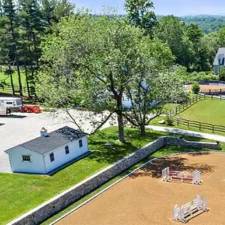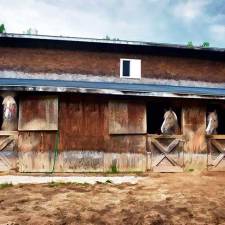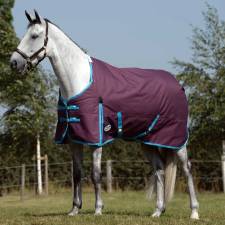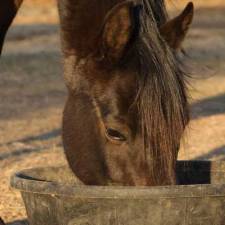
by Lisa Thomas
I have lots of clients who own, run or want to own horse boarding facilities in the wine country. They are a unique breed and what fascinates me is how very different they all are. Each operation is quite different, they all have their own market positioning and way they do business. It's a little like real estate... lots of agents, with lots of different ways of doing business, each potentially successful in their own way. So what is the attraction of owning a horse business? And the secret to success? Here's my view, based on seeing how a lot of these operations are run...
It's a Service Business - make no mistake. Providing horse care and the facilities for people to ride or enjoy their horses is a service. That means that making the client feel happy is the secret to keeping them as clients. Good service is something people pay for. Making something cheap is almost always going to mean that you don't do much for them.
The nice thing about boarding businesses is that there is a market for everything from the basic DIY boarding... i.e. Do It Yourself... to the full service DUP 'Drive up Darling, your horse is saddled & waiting' and everything in between. At the lower end you provide a safely fenced pasture and water and the owners provide the care. At the upper end, you are the all inclusive resort vacation site with full service, 3-4 times daily feeding, supplements, spraying, rugging up, holding for farriers, medicating, tack cleaning... take this as far as you'd like to go service. Find your market and be clear about your service offering. This is the secret to making a profit, not just income.
Interesting People! Taking care of horses means taking care of their human 'parents' too and the people that you meet are fascinating. Everything from cowboys to the rich & famous, folks from all over the world and depending on the type of boarding operation, possibly from all different riding worlds as well. Let's face it, people who love horses are generally pretty good folks, lots of long-lasting relationships form as you are taking care of their pride & joy and if you do a good job, they can be grateful forever.
Good income! If you do it well, you can generate good, solid, reliable income while covering the overhead for your own horses. Like any home business, a stable also enables you to tax deduct a lot of expenses that you couldn't otherwise take. There are all kinds of nice angles to this (talk to your accountant!) but they include putting your kids to work... and on the payroll, reducing or eliminating most horse expenses for your personal ponies and having the business contribute to your housing, maintenance and property upkeep costs. Properties with boarding businesses also qualify for 1031 Starker Tax Exchanges, so if you own rental property now, that can be an attractive way to leverage your investment into acquiring something that will help pay for your horse hobby. But don't confuse income with profit...
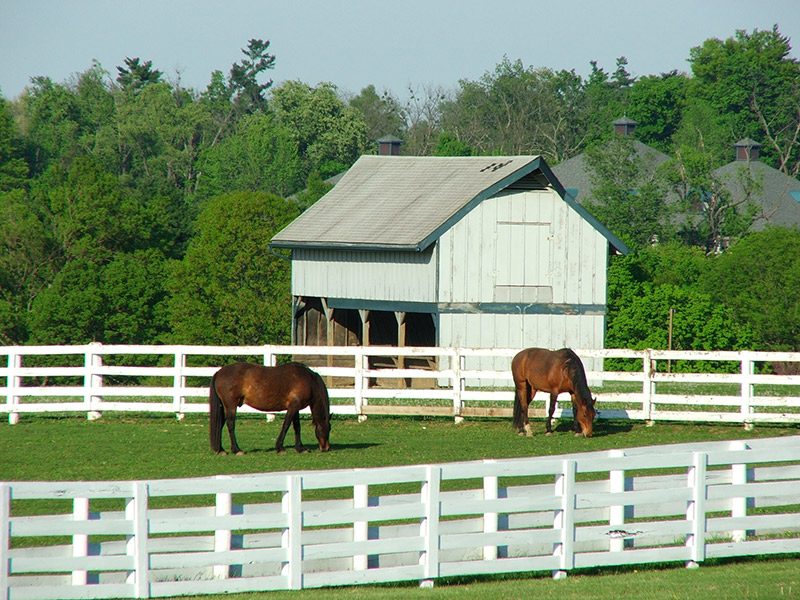
You Just Love Horses! Well, if you're going to do this, you'd better! But you had also better know something about taking good care of them. Stable management, nutrition, keeping a watchful eye on the health of your charges will all be important aspects of the job. There are many excellent courses out there to help a newbie stable owner. So if you do enjoy horses and being around them, why not find a way to make a living at it? If 9-5 isn't for you, if you're grinding away at a desk job and long to be outdoors, if you can't wait to get to the stable... this could be a life changing decision.
Control... Yes, you do get to make the rules, set your hours and have some flexibility in your schedule. It is hard work, to be sure, but you don't have to do everything personally. The size, scale and number of employees will dictate how much physical labor you do yourself, as opposed to managing operations. You can have a private life, sleep in on a Sunday and turn clients away if they don't fit into the routine you set.
Live in the Country... you can't be a city slicker in a horse 'yard'. If you like having elbow room, not seeing a neighbor and being close to nature, then the appeal of living in the country will be one of the greatest joys for you. There's no substitute for fresh air, sunshine and exercise to make you feel good and look healthy. It's not exactly a spa package but there are definite physical and psychological benefits.
So what are the 'Secrets' to running a successful equestrian facility?
Be Customer-Focused - some barns have a 'take it or leave it' attitude to customer service. It may work and it can definitely keep costs down but to keep boarders long term, you may find that giving a little special attention to a horse or owner's needs pays off in the long run. Remember, an empty stall costs more to fill than keeping a good client happy and sticking with you. Spraying a horse with fly spray doesn't take 20 seconds and if it keeps a happy client, then it's a good thing to do. Try to find an acceptable line between providing free and chargeable services. Clients don't want to get their bill and feel 'nickel & dimed' to death and you can't afford to give them the Ritz Carlton treatment at the Holiday Inn rate. One owner I know makes a point of asking clients their opinion about things. She does it quietly and one on one, so she gets their feedback without starting an uprising back at the barn.
Be Present - there is no substitute for 'Face Time' with clients and no better way to manage your business and your employees than walking the walk. Be physically present on the yard, visible to clients so they know you are paying attention and watchful. This keeps staff AND clients in line! Having access to the owner/ manager is important to many boarding clients. This is even more critical if you have trainers operating out of the yard. It helps for Trainers to understand that this is your business and that you are paying attention without being intrusive on their running their business.
Clear Communication - be clear upfront about what you offer and don't offer in terms of services, so clients know what to expect. When new clients arrive, this is a good time to explain your rules and your personal boundaries. If you live on the property, you need people to respect your privacy but still feel free to call on you if they have an emergency. You can avoid a lot of problems with people, both clients and staff, if you set clear expectations upfront. This also pertains to paperwork. Be diligent about boarding agreements, vaccination certificates, liability releases, payment requirements, etc. It's easy to get it right once. It takes a lot of time to clean up afterward if things are not set up correctly in the first place.
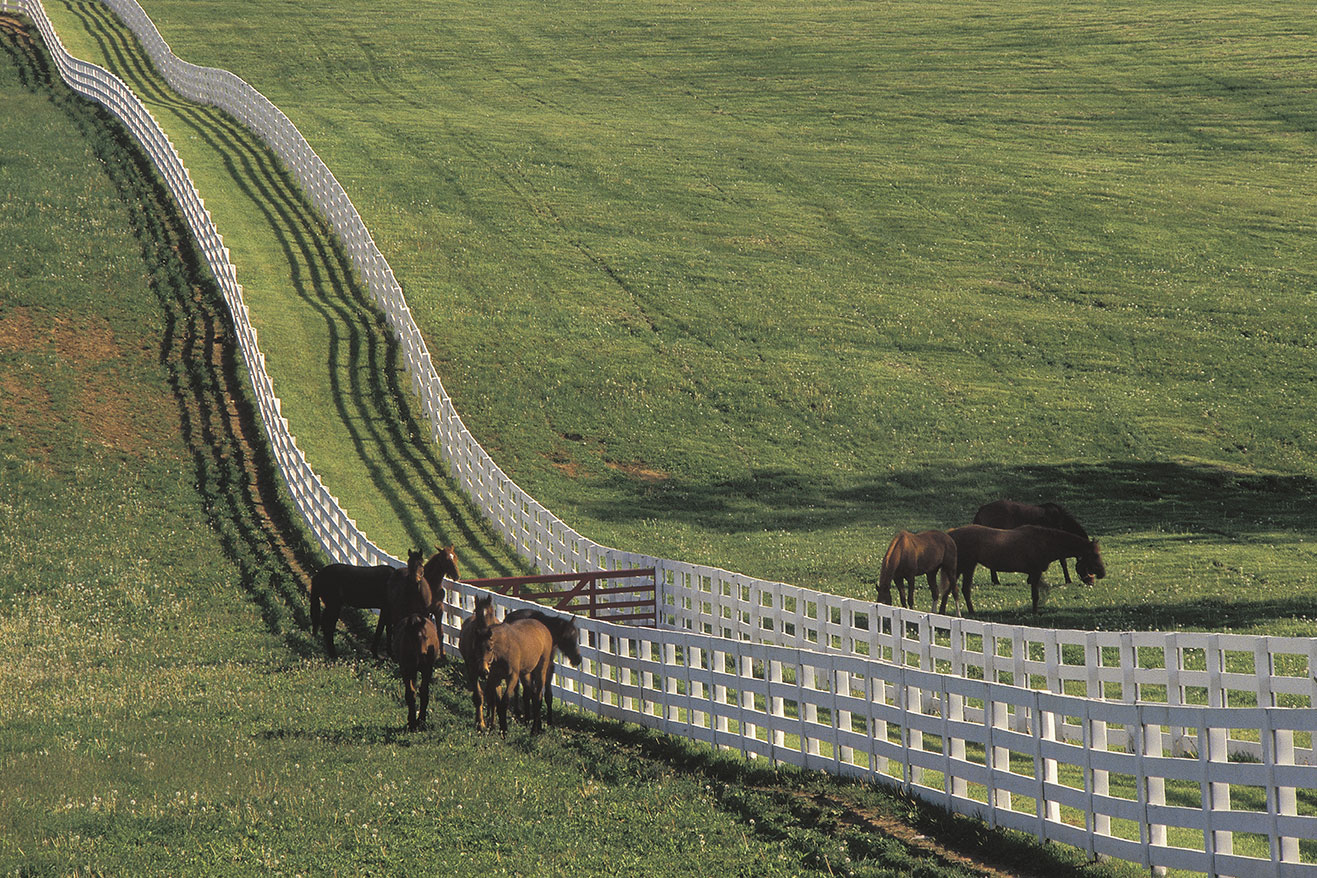
Set Your Quality Standards - appearances count! Don't let the entrance or the barns get to looking run down. The larger your facility the more important this is, in my view. Larger operations always have a turnover of clients due to their size. This means you're always marketing and new clients are always coming to check you out. Making your barn look spiffy pays off in attracting them and in keeping your loyal, highly valued clients as well.
It's about People - many owners think it's about horses. Doing a good job with the horses is what Organizational Psychologists call a 'hygiene factor' meaning duh... you have to do a good job with the horses to be in business. But going beyond that is what makes the difference between a good quality operation and a poorly run, unpopular one. So keep the owners happy and watch out for the bad apples. They exist on every trail of life. Some clients just can't be pleased. Try to be clear about your rules & expectations, screen them out early and ask them to leave if they are a problem. Better to have one empty stall than for all your good clients to get upset or irritated and find another home for their horses.
Take Care of Your Employees - like ANY business, the staff can make or break you. First class training is crucial so people know what to do and what you expect. Treat your employees with respect and compensate them fairly. Good staff are hard to find... you have to make them. Acknowledge their contribution to your business & recognize that they enable you to have a private life! They will see that you work hard and be grateful for your recognition.
Permits & Licenses - boring stuff but just like paying your taxes, if you don't take care of it, you are sunk. The regulations are crafted to insure that the animals are protected, that you are not creating a neighborhood nuisance and that you are operating within the law. The big issues are usually manure and vector management (that's flies); protecting the local water supply; traffic and noise issues and if you are serving the public, accessibility. There are several zoning classifications that allow stables, depending on the type of business you are planning. Basically you have to adhere to all the county building codes and then some. Planning to fly under the radar? Beware... you can lose your business and your home if you're not careful.
Have a Business Plan - Fail to plan and you're planning to fail. You need a clear plan of how you are going to succeed in this arena. What will differentiate you from the other barns out there? Why will clients want to come to you? How can you generate superior profits to your competition? How will you market your business? How long will it take you to get up and running? Your plan should include a budget so that you have a good idea of what you can & can't afford. Be sure to budget for marketing activities.
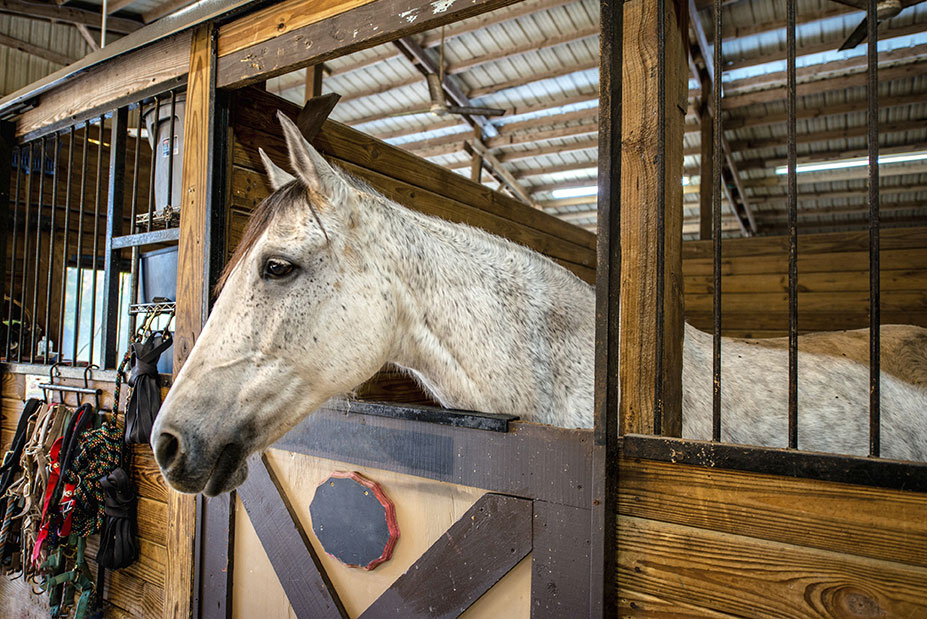
Manage the Plan and Make a Profit - never forget this is a business. You will lose the business, the property, your shirt and all your friendships if you don't make a profit and an honest wage. You will take in a lot of money. But you also have a lot of expenses. If you don't have a head for business, enlist the aid of someone who does. The money can trot out the door pretty fast if you're not careful. In general, the most profitable facilities are the larger ones. Under 20 horses and you're really a one-man band with some help, either with some part time or maybe one full time staff. Be prepared to be hands on, and involved in everything that happens. Over 30 horses and you start to have a little more support. You don't need to muck stalls and are more focused on marketing, operations and staff management. Once you hit 50+ horses you move into a different level of profitability. Your overheads are covered and the income from an extra horse or two really does go to the bottom line. Marketing and managing a quality operation are the make or break activities for you. Once you've nailed the boarding side of thing, leveraging your client base into training, showing, sales and other operations often adds substantially to the bottom line as well.
When I went to business school, they talked about businesses like this as 'Lifestyle Businesses' and they scoffed a bit because these are small businesses. But small businesses like this enable people to live their dreams, to do what they enjoy, to pursue their interests and not be beholden to an employer for their livelihood. And having worked in large, medium, small and now my own business... I know that many operators of well run equestrian facilities make more money than highly skilled company servants. They get to enjoy the day, walk in the sun, pat a velvet head, laugh with a client and feel good at the end of the day.
In today's world, we all work so hard... why not do something you love? Running an equestrian business may not be right for you, but don't be scared to consider it if you have some business acumen and a love of horses. It's a strong market here in the wine country, where horses are the second largest agricultural endeavor (next to grapes, of course!)
Lisa Thomas is recognized as one of the most experienced and knowledgeable horse property realtors in Northern California. Lisa sells both private farms and professional horse facilities and is passionate about helping people find the perfect farm for them. Living the good life in Sonoma County with her Danish Warmblood and Thoroughbred, she enjoys training in dressage as well as trail riding and horse camping. Lisa is very active in the horse community, rides for the Mounted Assistance Unit and is a former board member of the Sonoma County Horse Council. Visit her online at www.PremierCountryEstates.com.








